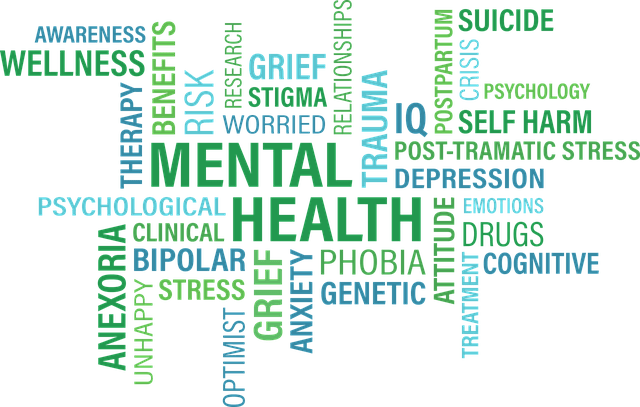
By James Irwin, Director at Irwin & Stone
Mental health is the elephant in the 21st century’s room. One in four of us will experience a mental health problem in the course of a year. Mental ill health in England is costing the country £105.2 billion causing untold pain and suffering to millions across the country and their friends and families. Still, despite these statistics I still feel like it seems it is taboo to speak about or ask about mental health. If a colleague broke their leg and came back to work there would likely be flowers and a card. If the same colleague came back from time off due to mental ill health there would likely be the awkward shuffling of paper. Indeed only 39% of employees would tell the truth if they had to call in sick because of stress, anxiety or depression, according to research from healthcare provider AXA.
Mental health first aid
I recently had the opportunity to attend the Adult Mental Health First Aid ‘Lite’ course through Mental Health First Aid (MHFA) England. I sat the course because I knew the facts above and wanted to do something about it. The course completely changed my mind-set, attitude and approach to mental health which made me think – given the cost and pain mental ill health causes, should some form of mental health first aid be mandatory?
In no way did I have any special insight into mental health prior to the course or hold a level of compassion above the norm. Indeed my starting point of knowledge on mental health was well behind where I believe we should be as a society. I had a vague idea of the major mental illnesses but would struggle to define these, and I felt I had very little to offer in regards to supporting people in distress, and, like most people I avoided any discussion around mental health. I thought I had a fair and balanced view of people with mental health issues – however one 5-minute role play quickly highlighted some home truths.
Unfortunately, I believe my starting point is about par for males. Growing up in New Zealand, mental health was not something a young male would talk about. This directly leads to New Zealand having the second highest youth suicide rate in the OECD. This is not unique and ‘New Zealand’ could be replaced with anyone of a number of environments where mental health is not discussed, particularly amongst men – ‘The Construction Industry’, ‘The rugby club’….the list is endless.
The course itself was an introductory three hour mental health awareness course. With the intended outcomes of being able to:
- Define mental health and some common mental health issues
- Identify stigma and discrimination surrounding mental health issues
- Relate to people’s mental ill health experiences and support people in distress
- Learn how to look after your own mental health
Perhaps lofty goals for a three-hour session, and how far along this list you get will in a large part depend on your starting point.
This small three-hour investment has made me more aware both of my mental health and of others. Of course, this was only a very brief taster and there is much more I can and will learn on the topic. However I now firmly believe just this session has put me in the position where I can, at the very least, spot and give very rudimentary assistance to those in need. I now believe it was simply being in an environment where mental health is discussed openly with facts clearly outlined which has somehow opened a new window in my mind and completely changed my perspective. If everyone invested three hours there would be a huge dent in the elephant and the pain and the cost. Which is why I believe society should at least be having the conversation about this being mandatory.

What was the course all about? I’m not going to give away too much as the surprise element I believe is critical to the success of the course. However, at worst you will walk away with a few home truths about the reality of mental health (to balance the negativity the media largely reports) and perhaps a new mind-set across stigma and discrimination. At best you will be able to spot the signals and provide mental health first aid (before the professionals get involved) and just as importantly get some tips on how to look after your own mental health….how did I not know about the stress bucket concept? You might even walk away with a first-hand experience of the impact of voices in your head would have on your daily life….
But, you are not put on the spot to open up about yourself or talk about anything which makes you uncomfortable.
As a society it’s very easy to look back at our mistakes of the past with a pair of “arrogant specs” – ‘how did those people treat others in that way hundreds of years ago?’ ‘If I were around then I would have stood up and acted differently.’ Very easy to say and think, much more difficult to look around the society we live in and identify the issues which our children will look back at with disbelief, surely our attitude to mental health is one of these topics.
Theresa May also recently put mental health at the forefront of the health agenda. This included mental health training in every school, excellent start however this still leaves the adult population.
There are some excellent initiatives globally tackling mental health and mental health first aid. From Mates in Construction in Australia to the UK’s relate ’Mates in Mind’ which the Health in Construction Leadership Group (HCLG) and the British Safety Council are launching. These are all extremely important. Clive Johnson, who for many years has been at the forefront of the health and safety agenda in construction, and Chair of the HCLG, recently mentioned the shocking statistic that “It is estimated that the number of deaths from suicide in the construction industry could be ten times higher than those from fatal accidents at work”. Given this surly our current investment is not enough. I’m not suggesting everyone should sit the same course I did but some training is surly essential in 2017.
Many of the new initiatives are coming out of the health and safety field with this topic being a natural fit. Leaders such as Martin Coyd, Head of Health and Safety – Construction at Mace are doing some excellent work. In addition mental wellbeing is currently a key topic on the Health and Safety Executives “Help Great Britain Work Well” strategy. This is all extremely valuable however it still feels like the tip of the iceberg.
I’m not a massive proponent of making many things mandatory in life and I can’t see mental health first aid being made mandatory by the government. However surely it won’t be long before more and more companies spot the win/win and invest more in the mental wellbeing of their employees. Those companies taking action on mental health first aid, including some form of training, will have a more efficient, happier and productive workforce which will create a massive competitive advantage. It will perhaps be this driver which will make mental health first aid a higher priority as those companies who don’t act will no longer be able to compete?

James Irwin is a Director at Irwin & Stone a specialist UK based Recruitment Consultancy in the health and safety space. For more information please contact James, [email protected] www.irwinandstone.com +44 (0)207 0784 099
What makes us susceptible to burnout?
In this episode of the Safety & Health Podcast, ‘Burnout, stress and being human’, Heather Beach is joined by Stacy Thomson to discuss burnout, perfectionism and how to deal with burnout as an individual, as management and as an organisation.
We provide an insight on how to tackle burnout and why mental health is such a taboo subject, particularly in the workplace.





If, productivity, productivity, productivity, is going to be the new mantra to dig us out of the big black hole left by the banks then, the debilitating affects of poor moral, loss or deficit in Wellbeing and/or emotional or mental health manifesting in performance and productivity deficits aligned with increasing presenteeism and just working to live will have to be addressed. Without fundamental changes, a shift in mind-set and governance improving “given conditions” in the workplace fostering a more pro-social environment in order to reduce socio-psychologically negative cultures, surrounding stick and carrot flogging of dead horses, we are unlikely to… Read more »
We bring our luggage of life to work, and we take our wagon of work back home. Deciding which one affects the other the most is the real challenge.